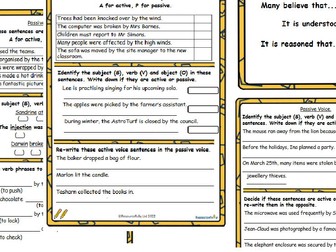
Yr 6 NF Unit 4 Formal/Impersonal writing: Tourists
Use leaflets and websites of castles and tourist sites to provide examples of many different text types. Study features of formal language and transform ‘officialese’ into accessible English. Children then create a virtual guided tour using appropriate language styles.
Find other lesson plans and resources at www.hamilton-trust.org.uk.



















